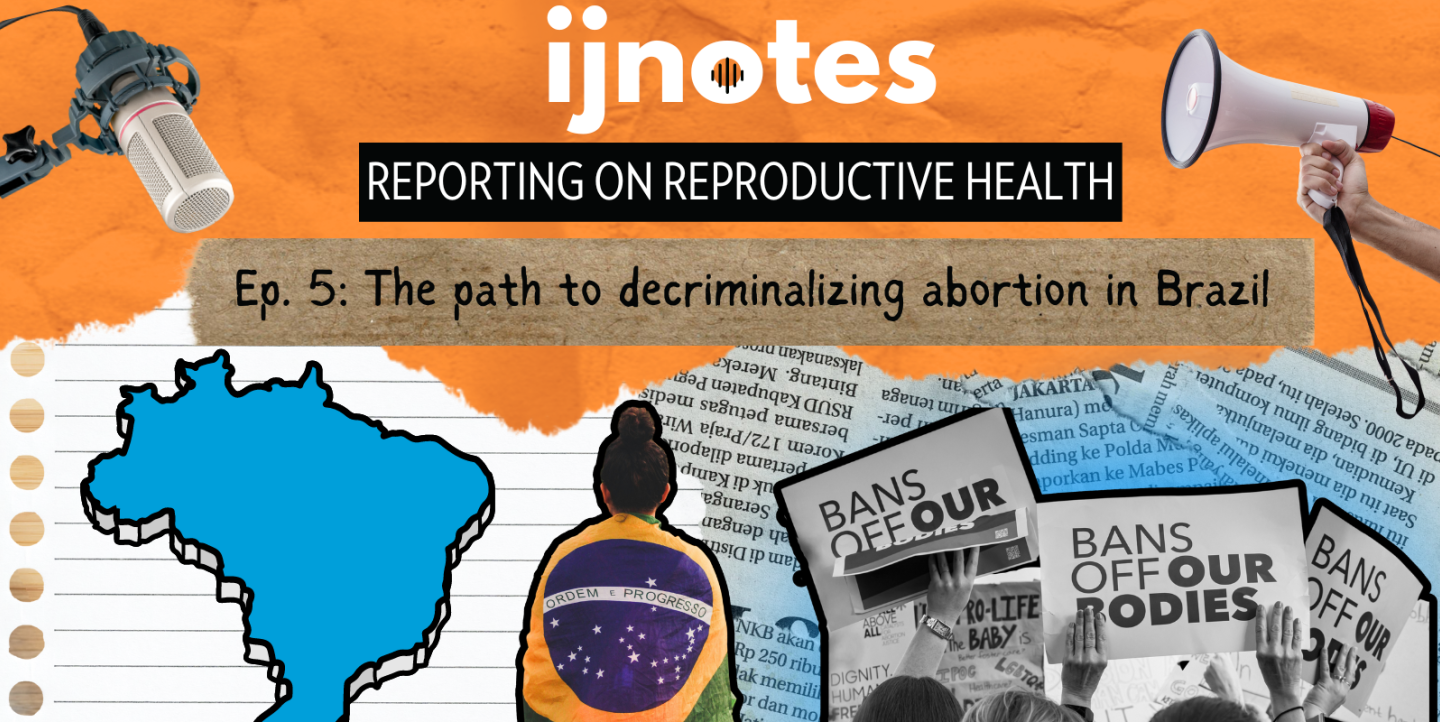In Latin America, legislation and debates around reproductive rights are moving in different directions. Abortion has been banned in Nicaragua and Guatemala in recent years, but other countries such as Mexico and Colombia have decriminalized or even legalized it.
Brazil, Latin America’s largest nation, currently has very restrictive abortion laws. Today, abortion is only allowed in the case of rape or incest, if there is a risk of death for the pregnant woman, or in cases of anencephaly, a serious, fatal birth defect.
In September 2023, then-Supreme Court President Rosa Weber cast a vote that would have the Supreme Court consider a case to decriminalize abortion that occurs up to 12 weeks after gestation. A decision to decriminalize would have important ramifications for reproductive health access for millions of people in Brazil, especially young girls, whose rate of teenage pregnancy is still much higher than the world average.
In our latest IJNotes episode on reporting on reproductive health, I speak with Ester Pinheiro, journalism producer at Revista AzMina, a Brazilian outlet that covers stories with a gender focus. Pinheiro is also the founder of Feminismos del Sur, a podcast that addresses gender issues in the Global South.
Pinheiro discusses how networks of activists and journalists from across Latin America can work together to cover reproductive health, the challenges journalists face when covering the issue in Brazil, and what the upcoming Supreme Court case means for Brazilians.


